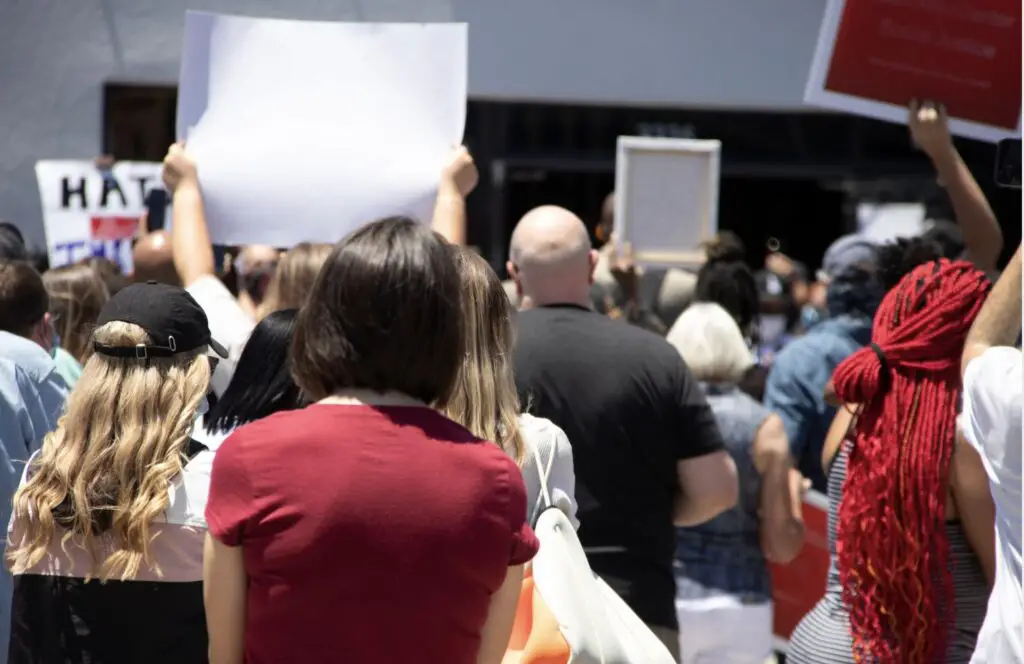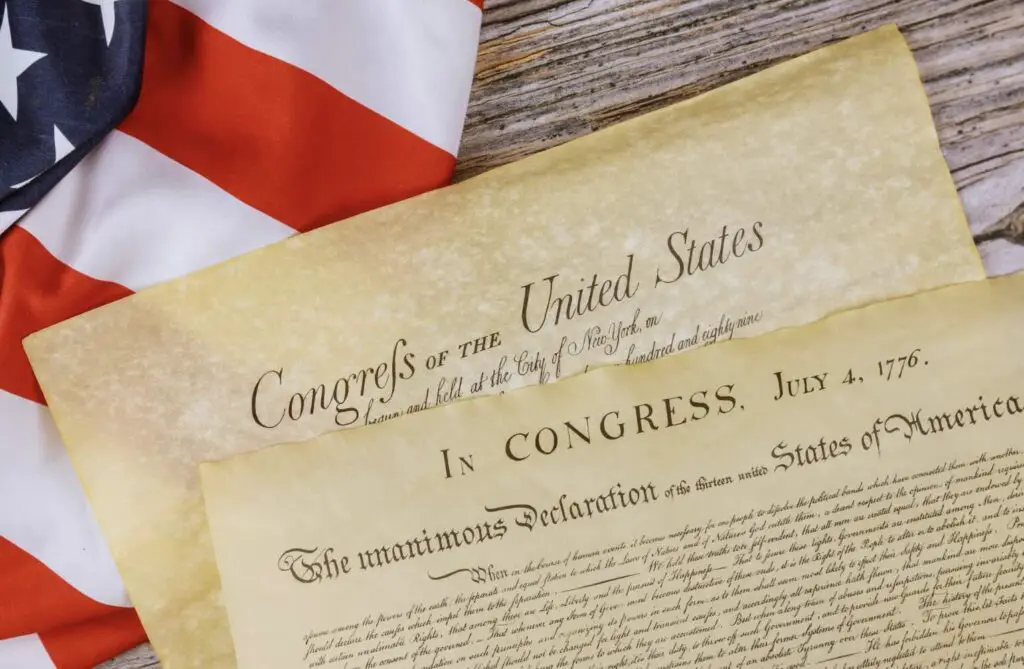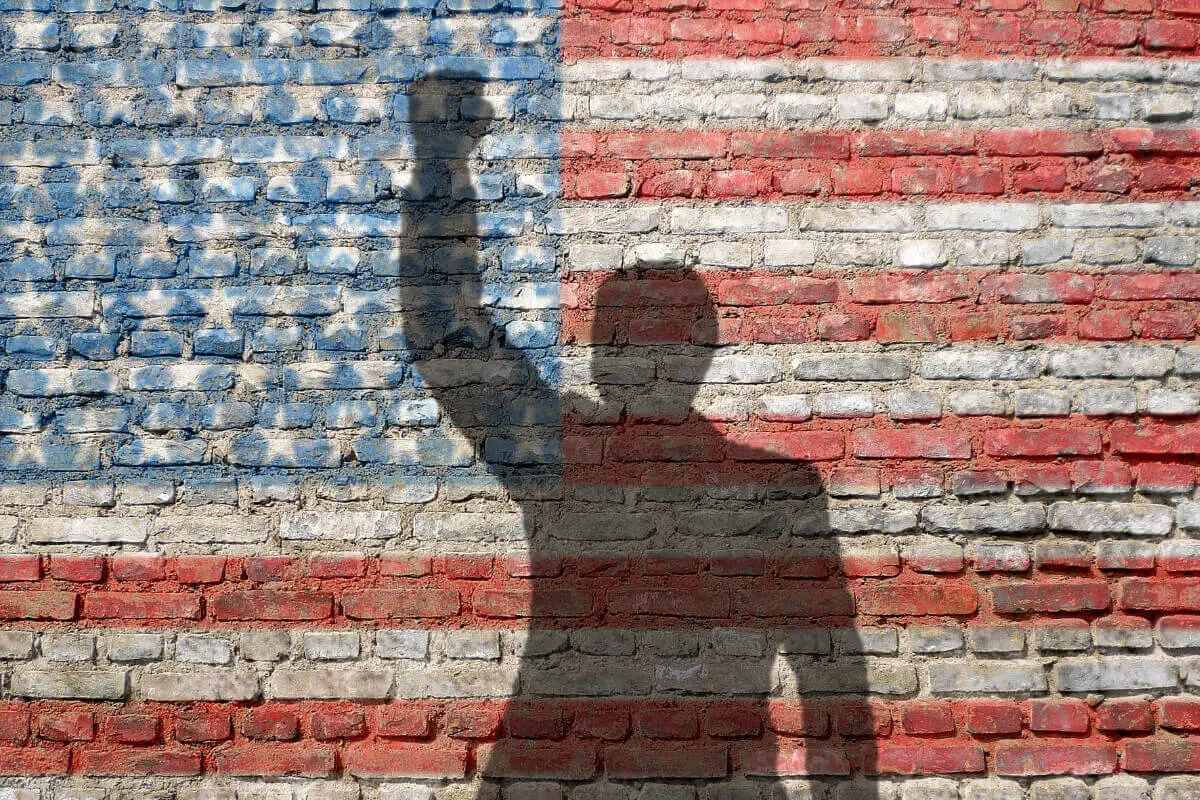The struggle for civil rights has long been a passionate and often turbulent aspect of American history, marked by courageous individuals and monumental shifts that still resonate today.
By exploring the significant events that have shaped the movement, we begin our journey through the past turning points, including the courageous battles for freedom and equality. As we set out, we’ll look at the luminary figures and key changes that sparked a broader conversation on what it means to live with justice and dignity in America.
Table of Contents
- Historical Context and Key Movements
- Current Civil Rights Challenges and Legal Landscape
- Environmental Justice
- The Role of Media and Technology in Shaping Civil Rights Discourse
- Civil Rights Education and Advocacy Efforts
- Related Questions
Historical Context and Key Movements
In understanding the civil rights movement in America, we must look back at key events that have significantly altered its course. Each pivotal moment became a stepping stone, shaping the journey toward equality and justice.
The Civil Rights Movement: Pivotal Moments and Their Impact
The civil rights movement has been a vast and complex tapestry of struggle and triumph, marked by key instances that significantly altered its trajectory. This journey of social transformation reveals the resilience and determination of individuals committed to change, echoing America’s ongoing quest for true democracy grounded in equity and justice.
The Slavery Abolition
The first significant stride came with the Emancipation Proclamation in 1863, passed by President Abraham Lincoln. This pivotal decree marked the beginning of the end for slavery, declaring that “all persons held as slaves” within the rebellious states “are, and henceforward shall be free.” Though the road to actual freedom was long and fraught with new forms of subjugation, such as the Black Codes and Jim Crow laws, the proclamation ignited a flame for civil liberties that would burn persistently.
The Civil Rights Act of 1964
Fast forward to the 20th century, and we encounter the Civil Rights Act of 1964, a comprehensive law prohibiting discrimination based on race, color, religion, sex, or national origin.
This transformative legislation directly resulted from the tireless efforts of civil rights leaders and activists who, despite facing severe oppression, galvanized public sentiment through nonviolent protests and civil disobedience. This act significantly dismantled the legal foundations of segregation and discrimination.
The Voting Rights Act of 1965
Another monumental step came with the Voting Rights Act of 1965, which enforced the 15th Amendment and eliminated obstacles that barred racial minorities from voting, like poll taxes and literacy tests. This act was remarkably significant because it recognized the fundamental right of every American citizen to participate in the democratic process. The right to vote effectively wielded, became a powerful tool for shaping public policy and holding elected officials accountable.
The Fair Housing Act of 1968
The Fair Housing Act of 1968 marked a critical turning point in the realm of housing. This legislation was enacted to eradicate housing discrimination and promote residential integration. Before this act, individuals faced tremendous discrimination based on their race, preventing them from purchasing or renting homes in specific neighborhoods. With the passage of this act, doors began to open, granting more Americans access to opportunities in homeownership and stable communities.
Recent Struggles and Movements
In more recent history, the persistent issues of police brutality and systemic injustice have led to the birth of new movements like Black Lives Matter. This movement, established in 2013, has brought about a renewed urgency and global awareness of the injustices that African Americans face, particularly in interactions with law enforcement. Through activism and advocacy, this movement demands accountability and aims to dismantle systemic racism that affects not only the criminal justice system but numerous facets of American life.
Looking Forward
The struggle for civil rights has never been linear. Every chapter of this ongoing story is interwoven with setbacks and victories, reflecting an America continually evolving in its understanding and commitment to civil rights.
It is in the journey from the abolition of slavery to the ongoing fight for equality today that we see the soul of America striving toward its promise—a promise of liberty and justice for all. As we consider civil rights’s path, we grasp the monumental struggle in bending the arc of America’s moral universe toward justice. The legacy of these pivotal moments continues to inform and inspire current and future generations to pursue a nation where freedom and equality are not just ideals but reality for every citizen.

Current Civil Rights Challenges and Legal Landscape
Contemporary Civil Rights Issues: A Glimpse into Today’s Struggles for Equality
As we step forward in the 21st century, the civil rights discourse continues to evolve, touching on a range of issues that reflect the changing dynamics of our society. Today, several new battlegrounds form the core of civil rights discussions, where advocates champion the cause of equity, representation, and freedom from oppression across multiple fronts.
Social Justice and Intersectionality
The term “intersectionality,” coined by scholar Kimberlé Crenshaw, has become pivotal in understanding how different aspects of a person’s identity can lead to varying forms of discrimination. Modern civil rights dialogue now keenly focuses on the intersection of race, gender, sexual orientation, and other identity markers. Activists argue that to achieve true justice; initiatives must consider these overlapping identities and the unique challenges they create.
LGBTQ+ Rights
The fight for the rights of the LGBTQ+ community has taken center stage. Issues like same-sex marriage, which achieved a landmark victory with the Supreme Court’s ruling in Obergefell v. Hodges, are now joined by broader concerns. These include protection against discrimination in employment, healthcare, and public accommodations. There’s also a significant debate on the rights of transgender individuals, particularly regarding bathroom access, gender markers on official documents, and participation in sports.
Voter Suppression and Election Fairness
Despite the landmark successes of previous decades, voter suppression remains a pressing issue. Initiatives to ensure that all citizens can exercise their right to vote without onerous restrictions continue to be a focal point of civil rights activism. Current debates revolve around voter ID laws, purging voter rolls, and the accessibility of polling places, as well as the broader issue of gerrymandering, which has shaped political power in a way that civil rights advocates say undermines the principle of equal representation.
Immigration and Rights of Non-Citizens
In an increasingly globalized world, the rights of immigrants and refugees are a central element of the civil rights conversation. From Dreamers protected under DACA (Deferred Action for Childhood Arrivals) to asylum seekers at the border, the policies affecting non-citizens often fall under scrutiny for potential human rights violations. Advocates push for comprehensive immigration reform that upholds the dignity and rights of all individuals, regardless of their citizenship status.
Economic Inequality
The gap between the haves and have-nots continues to widen, and civil rights activists argue that economic inequality is not merely an economic issue but also a civil rights issue. The dialogue includes advocating for livable wages, equitable labor practices, and access to necessary resources such as quality education and healthcare, often stratified along racial and socio-economic lines.
Disability Rights
The Americans with Disabilities Act (ADA) was a milestone in recognizing and addressing the rights of individuals with disabilities. Today, efforts persist to ensure full accessibility and accommodation in all areas of public life. From technological advancements to inclusive education practices, civil rights discourse seeks to dismantle barriers and promote a society that fully values the contributions of people with disabilities.
Environmental Justice
Environmental issues are increasingly seen through the lens of civil rights, as marginalized groups often bear the brunt of environmental degradation. The push for environmental justice highlights the disproportionate effects of issues like pollution and climate change on communities of color and low-income neighborhoods. Civil rights activists call for equitable policies that ensure everyone has access to clean air, water, and a healthy environment.
While the civil rights landscape has undoubtedly changed since the Emancipation Proclamation and the Civil Rights Act, its essence remains the same: to champion human dignity, eradicate discrimination, and create a society where every individual has the opportunity to lead a full and unfettered life. As we continue navigating these contemporary issues, we must cling to the spirit of progress, advocacy, and resilience that has always driven the civil rights movement.

The Role of Media and Technology in Shaping Civil Rights Discourse
Modern technology has fundamentally transformed the landscape of civil rights discourse, expanding our horizons on equality and injustice. As society becomes increasingly interconnected through the digital realm, the dialogue around civil rights has taken on new dimensions, allowing for more inclusive and accessible conversations.
Social justice and intersectionality are now at the forefront of civil rights discussions, largely thanks to social media platforms. These digital spaces have become critical in highlighting the interconnected nature of social categorizations such as race, class, and gender, which can lead to overlapping systems of discrimination or disadvantage. Through hashtags, viral campaigns, and storytelling, individuals from diverse backgrounds can share their experiences and perspectives, fostering a more comprehensive understanding of the complexities involved in social justice.
The LGBTQ+ rights movement has also gained significant momentum with the advent of modern technology. Online communities provide safe spaces for people to express their identities and find support. Advocacy for LGBTQ+ rights is amplified through virtual campaigns, online petitions, and awareness-raising initiatives that leverage the reach and speed of the internet to mobilize support quickly and effectively.
Voter suppression and election fairness remain critical issues within civil rights discourse. As technology evolves, so do the methods of both facilitating and challenging fair voting practices. While social media can spread awareness about voter registration and critical deadlines, it can also be a battlefield where misinformation campaigns attempt to disenfranchise specific voter groups. Cybersecurity becomes a pivotal concern in ensuring the digital infrastructure supporting elections resists manipulation and interference.
The conversation around the rights of non-citizens, including immigrants and refugees, is deeply entwined with technology. Modern communication tools have given voice to those often marginalized in these debates. The stories of immigrants and the challenges they face are no longer abstract concepts but humanized through shared videos, images, and live streams, fostering empathy and understanding on a global scale.
Economic inequality remains a persistent barrier to achieving complete civil rights for all. Technology has the potential to both bridge and widen the economic divide. On the other hand, online education and remote work opportunities can offer pathways out of poverty. Conversely, the digital divide—a gap between those with easy access to computers and the internet and those without—can exacerbate existing disparities. Thus, the discourse around economic inequality must address the potential and pitfalls of our increasingly digitized economy.
Technological advancements have boosted disability rights. Accessibility features on devices and software, such as screen readers and voice recognition, have made it easier for those with disabilities to participate in society fully. Online movements advocate for inclusive design and proper representation, calling for ongoing innovation and technological adjustments that acknowledge and cater to the diversity of human ability.
Finally, environmental justice has emerged as a pivotal component of civil rights, with technology playing a dual role. Data collection and analysis enable us to understand the disproportionate impact of environmental degradation on marginalized communities. Conversely, the same technology can galvanize support for green policies and practices, empowering citizens to hold corporations and governments accountable for environmental stewardship and ensuring fair treatment of all individuals regardless of their background.
In summary, the dynamic interplay between modern technology and the evolving conversation on civil rights continues to reshape how we understand and champion equality and justice. By harnessing the power of digital tools and addressing their challenges, we can foster a more equitable and just society for future generations, where civil rights are not just an ideal but a reality for all.

Civil Rights Education and Advocacy Efforts
Social justice and intersectionality involve a deep understanding that various forms of discrimination, including racism, sexism, and classism, frequently operate together, influencing how individuals experience oppression and marginalization. Education in this area is crucial to foster empathy and awareness that can fuel sustained change. By learning how different identities intersect, people can become influential allies and advocates, working to create an inclusive society that acknowledges the unique struggles faced by diverse groups.
The LGBTQ+ rights movement is a testament to the profound impact of advocacy and the importance of understanding the complexities within this community. Education on issues such as gender identity and sexual orientation is vital in dismantling prejudices. As acceptance grows, laws evolve, granting protections and rights once denied. Online advocacy plays a pivotal role here, spreading awareness through social media campaigns and mobilizing support for policies ensuring equality.
Voter suppression remains a barrier to democracy, with tactics like stringent ID laws disproportionately affecting minority and low-income groups. Educating the public about election fairness is essential to upholding a democratic society. When citizens understand their voting rights and the mechanisms that can infringe upon them, they can push for policies that promote fair access to the ballot box, ensuring every voice is heard.
Political discourse often contests the rights of non-citizens, immigrants, and refugees. Civil rights education fosters understanding of the challenges faced by these groups and advocates for policies that respect their dignity and human rights. Combating xenophobia and misinformation with factual, empathetic narratives that humanize these experiences, leading to welcoming communities and just policies, is essential.
Economic inequality is a multifaceted issue, with technology playing a dual role. While it offers new opportunities for growth and learning, technology can also widen the gap between the haves and have-nots. Education on economic disparity is critical to developing strategies that leverage technology to benefit everyone, not just the privileged few. Individuals can advocate for equitable access to resources and employment by understanding how policies affect economic mobility.
Disability rights and the push for greater accessibility are critical to modern advocacy. As technology becomes ever-present in daily life, it’s imperative to create digital spaces that enable individuals with disabilities to participate fully. Education raises awareness about the needs and potential of people with disabilities, encouraging the development of inclusive practices and technologies that empower rather than exclude them.
Environmental justice is an essential pillar of civil rights education, as it addresses the disproportionate impact of environmental hazards on marginalized communities. Activism in this realm increasingly relies on data to highlight inequalities and drive policy change. Educating the public about the link between social justice and environmental health fosters a collective response to climate change and pollution, uniting communities to fight for a healthy planet for all.
Civil rights education and advocacy are not stationary endpoints in these areas but dynamic processes contributing to ongoing societal transformation. Sustained change germinates through the continued commitment to learning, sharing knowledge, and actively participating in advocacy. These efforts uphold the commitment to equality and justice for all, ensuring that the evolution of civil rights marches on, adapting to new challenges and embracing growing diversity.

With determined steps and an unyielding spirit, the drive for civil rights continues, echoing the past while forging new paths forward. As we delve into the stories and struggles that define this ongoing journey, we embrace its complexities—acknowledging the pain, celebrating the progress, and always reaching for a brighter, more equitable future. Through this exploration, we gain not only understanding but also the inspiration to uphold the cause of civil rights for every member of our national tapestry.
At A Bus On A Dusty Road, we discuss history, travel, life, sailing, and ex-pat living. We are all about “Living Life As A Global Citizen.” We explore social, cultural, and economic issues and travel.
We would love to have you be part of our community. Sign up for our newsletter to keep up-to-date by clicking here. If you have any questions, you can contact me, Anita, by clicking here.
Listen to our Podcast called Dusty Roads. You can find it on all major podcast platforms. Try out listening to one of our podcasts by clicking here.
Subscribe to our A Bus On A Dusty Road YouTube Channel filled with great videos and information.
Related Questions
What Makes Vietnamese Food So Delicious?
Vietnamese food is delicious and is gaining in popularity—one of the reasons is that good Vietnamese food uses only fresh herbs and ingredients. Vietnamese food also touches all of our five senses. The Vietnamese are masters at using sweet and sour tastes for their food.
You can discover more by reading What Makes Vietnamese Food So Delicious? by clicking here.
The Vietnamese Bun Cha Food Dish, All You Need To Know
One of North Vietnam’s most popular food dishes is bun cha. When you travel in North Vietnam, you will see signs everywhere advertising the sale of this famous dish called Bún Chả.
You can learn more by reading The Vietnamese Bun Cha Food Dish, All You Need To Know by clicking here.
Vietnamese Culture: Deep Dive Into Vietnam’s Culture
There’s so much we can learn from Vietnamese traditions and values. With its breathtaking landscapes, varied ecosystems, and vibrant cities, Vietnam is not merely a spot on a traveler’s itinerary. It’s a country rich in enduring traditions, values, and customs, offering a fascinating glimpse into Asia’s vast mosaic of cultures. Let’s delve deeper into why the Vietnamese culture is so captivating and rewarding to be immersed in.
By clicking here, you can discover Vietnamese Culture: Deep Dive Into Vietnam’s Culture.

